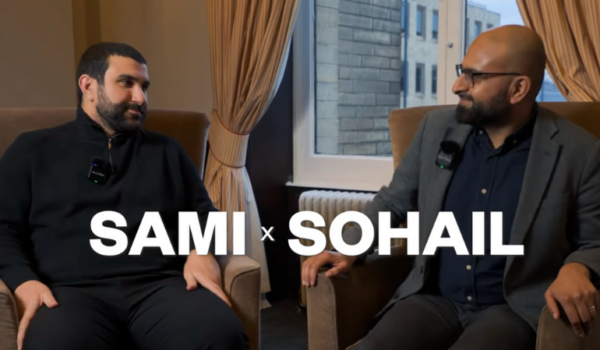[ARCHIVE] Zakat & Islamic Finance: Time to put first things first
Speaking at today’s EU Islamic Banking and Finance Summit today in London, the Chief Executive of National Zakat Foundation, Iqbal Nasim, urges Islamic financial institutions to take a more proactive role in supporting the institutionalisation of the most critical matter in the financial affairs of a Muslim: Zakat!
Imagine a situation in which you have been repeatedly complaining to your GP of a serious headache. He suspects you have a tumour and his intuition tells him you should probably be seen by a specialist, but for some unknown reason he doesn’t mention it to you. You too think you might need specialist help but are just too unsure or shy to ask. You just continue taking the painkillers that he has prescribed and your GP continues to advise you regarding all your other health-related concerns.
Life goes on, but if and when the reality of your situation were to finally hit you, with a realisation not only of the fact that you have a tumour but that your GP sensed this all along, how would you feel? What would your view be not only of the GP, but the entire practice in which he operates and perhaps even the healthcare system as a whole?
Now simply replace “GP” with Islamic bank, financial institution or financial advisor, replace “headache” with Islamic financial planning concerns and replace “tumour” with serious inaccuracies or obliviousness towards Zakat. You can even replace “specialist” with Zakat institution, even National Zakat Foundation!
Zakat is an obligation and a pillar of Islam, its regular payment being the single most important act in the life of a Muslim after the five daily prayers. It cannot be thought of as an act of charity that is completely disconnected with all other aspects of a Muslim’s financial affairs. It is part and parcel of the whole. The Prophet Muhammad (peace be upon him) reminded us of this by indicating that unpaid Zakat causes a spiritual rot within one’s entire wealth. A person may live their entire life avoiding riba (interest/usury) and investing in Shari’ah compliant products but it might all be for nothing if he or she is unmindful of Zakat.
Taking all this into account, would it be too much to argue that in fact the Islamic financial industry, whose raison d’être is to enable Muslims to manage their financial affairs in a way that is pleasing to their Creator and compliant with His law, has a strong moral imperative, if not a duty, to ensure that Zakat obligations are fulfilled and that Zakat institutions are adequately supported?
Indeed, a holistic approach by the industry that includes provisions for Zakat payers as part of its service offering would be not only laudable and refreshing spiritually but would carry real-world benefits of enhancing brand trust and loyalty. In an environment where cynicism about the Islamic finance industry abounds, a proactive mindset to address Zakat matters would be of significant benefit. Retail customers who can walk into an Islamic bank and deposit funds in a Shari’ah compliant manner, as well as being able to pick up a guide showing them how to calculate Zakat, would surely feel that they have just engaged with an institution that does actually care about Islamic financial values. A business that has raised financing through the issuance of a sukuk (Islamic bond) but has also been supported to calculate Zakat on its business assets accurately, would also feel the same.
In practical terms, including Zakat as an integral part of the industry’s framework requires more of a mental than a practical shift. Once the resolve is there to support the accurate payment of Zakat amongst businesses and individuals, the rest can be achieved through partnership with a credible Zakat institution.
National Zakat Foundation (NZF) exists to provide an end-to-end service for both Zakat payers and recipients and has partnered successfully with many organisations to help serve Zakat payers more professionally.
A case in point would be NZF’s partnership with Al Rayan Bank, soon to be rebranded Al Rayan Bank. Al Rayan Bank and NZF have worked together for over three years, NZF having formally been appointed the bank’s Zakat Education Partner in 2014. Some examples of the many initiatives under this partnership have been as follows: Al Rayan Bank customers have been offered Zakat seminars in branches, been given access to Zakat calculation guides and offered one-on-one Zakat consultancy services, all supplied by NZF. The bank has also facilitated the transfer of Zakat payments for customers who want to discharge their obligation from their Al Rayan Bank accounts.
In summary, engaging in positive partnerships with relevant Zakat institutions is the surest and easiest way of snowballing the revival in the adherence to Zakat. Not only will it open up education, calculation and collection services to entire customer bases and increase perceptions of authenticity towards the industry, but it will also force further professionalisation and transparency on behalf of the Zakat institution itself.
The Islamic financial industry is in a unique position to support this process and it is hoped that, just as healthcare systems would be expected to provide honest and holistic medical advice and support, the Islamic finance industry will approach matters similarly and therefore naturally put Zakat firmly back in its place.
Iqbal Nasim has been Chief Executive of the National Zakat Foundation in the United Kingdom since 2011. Prior to this, he worked for several years as Vice President in the equity research department of a major investment bank. Iqbal holds an MA in Economics from Cambridge University and is currently pursuing an MSc in Voluntary Sector Management at Cass Business School. For more information about the National Zakat Foundation, visit www.nzf.org.uk or email [email protected].
